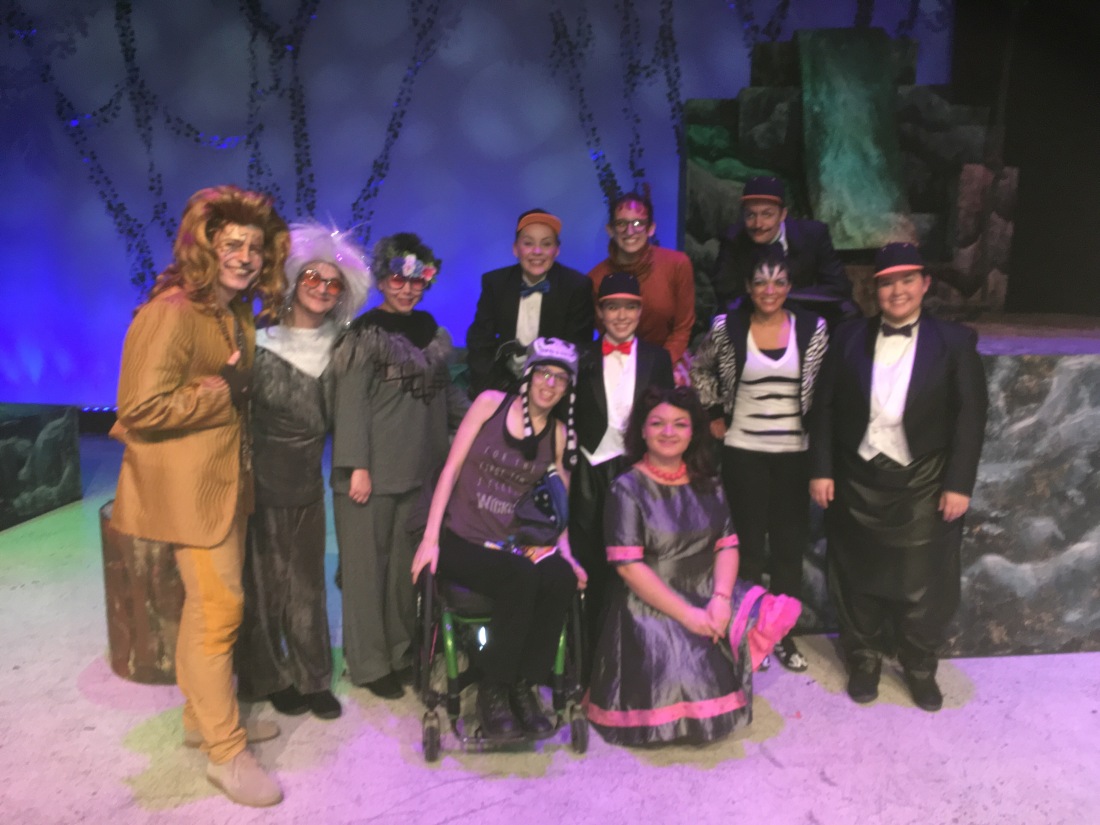I have always loved to perform, to be on stage, to be acting, dancing, speaking. I often laughed with people who were impressed with my stage presence that I feel more comfortable the larger the crowd gets. Speaking to one person is terrifying, so is a few. But the more that are added, the more they melt in the background and I can be less hyper focused on them, less concerned about how they are analyzing me, about how I don’t understand how to interact. Fear melts away and I try to trust myself and be confident in what I am doing.
Sometimes it was more successful than others. I was still too shy, too awkward, too constantly misunderstanding things to ever truly flourish. My confidence was mostly non-existent for most of my life. I was the kid who got written out of their grade 10 drama performance and played cards in the tech booth for the last month of the semester, the kid who skipped the gr.11 musical theatre cast party because I would rather hang out with my cousin, the kid who was 5 years older than most kids in their dance class.
I’m not the kid you would have expected to grow up and end up in Theatre. Or I am. I guess it depends. But I’m not the one my class would have voted as
“Most likely to end up in theatre after graduation.”
It actually gets even better.
In grade 10 I was away for some reason on the day our class decided roles for our final performance. It was decided that I would find it too uncomfortable and I was chosen to be lights. It turns out, during those drama classes I spent playing cards in the tech booth, I actually picked up some skills that are useful to what I do know. And what do I do?
Well there will be more on that,
But I help to make Theatre more accessible, more inclusive, more welcoming! Younger me would not believe this!
Right now I’m part of a very cool organization called Inside Out Theatre and they have an amazing program, The good host program. Working with consultants, like myself, who are from the communities we want to include, we collaborate with local theatre companies to provide a wide variety of shows accessible to people who might not get to experience the theatre otherwise!

As the relaxed performance consultant, I get to watch the regular performances of shows and use my skills of being able to write in the dark to make notes and suggestions on how to “relax” the performance.
Every relaxed performance is different, but the idea is to create an environment that is welcoming to a wider group of people.
There are lots of people that could benefit from a relaxed performance, so these are just some examples,
- People with anxiety, who maybe have never been to the theatre before
- Someone with PTSD, who might startle at loud noises and effects,
- People with chronic illnesses, health conditions, or disabilities that could make them need to leave the theatre sometimes to use the bathroom, take medications, or other things
- Autistic people, others with sensory sensitivities, or ADHD
- People with migraines, photosensitiity, epilepsy, or seizure disorders
And that’s just a few examples!
A relaxed performance is not a different show, it’s a show where small differences are made so that many more people are able to enjoy it!
It’s an amazing experience for me because I get to interact with so many different people,
From those who have never experienced theatre before,
To those in the industry.
And somehow, somehow the shy awkward kid that no one new what to do with found a place in all of this.
And together, there’s a lot of us working to help more people belong here too.